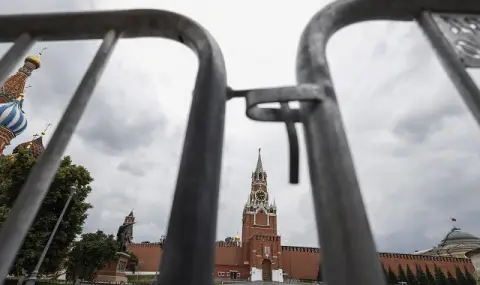How could someone as ordinary as Tsveti be a spy? This is the question many have asked themselves after the revelations about yet another Bulgarian citizen spying for Russia. But this is precisely Moscow's new strategy.
The story of yet another Bulgarian spying for Russia has raised many questions. One of the most common is: "How could someone so unprepared, so ordinary as Tsveti be a spy?" Recruiting such people is actually a consistent strategy of Russian intelligence.
After the start of Russia's full-scale war against Ukraine, Moscow lost hundreds of diplomatic staff who were expelled from European countries. A large number of them are believed to have been spies. This upheaval forced the Kremlin to change its espionage tactics.
Sabotage and unsuspecting foreigners
In the three years that the Russian army has been fighting against Ukraine, Moscow's intelligence agencies have mobilized and put their new strategy into action. To a large extent, it includes hybrid actions and sabotage. The big goal is: to shake European support for Ukraine and to sabotage the governments of the European Union countries in every possible way.
One of the new models of work of Russian espionage is the attraction of criminal groups or simply unknown young people and migrants to do the work of the services. This is also confirmed by NATO Deputy Secretary General James Appathurai, quoted by the American publication Foreign Affairs.
There are several reasons for this change. For example, these people can be attracted online, without agents having to meet them on site. On the other hand, different people can be used for different operations, and they can't even be told who is doing the ordering. This leads to the most important thing - they can't testify against the ordering parties in any way and the crime can be linked to Russia.
Minor operations with significant consequences
Actions that seem minor at first glance are also increasingly becoming part of Russian hybrid operations against Ukraine's European allies. Putting up stickers accusing Ukrainians of being Nazis, painting graffiti in key places in European capitals - all this works in Russia's favor. And although it seems unimportant, it is most often coordinated with online operations that distribute photos from these places as evidence that Europe does not support Ukraine, and the governments of the countries are actually not heeding the demands of their people, continuing to support Kiev.
An important end goal for Moscow is also how these actions will affect the political landscape in the countries of Europe. For example, before the German parliamentary elections in late February, there were several attacks against civilians in the country committed by migrants. According to a senior German intelligence official quoted by Foreign Affairs, Berlin has information that Russian services may have organized these attacks to strengthen support for the far-right, who also oppose support for Ukraine.
Distraction and preliminary accusations
Russian hybrid operations also use another strategy that is not new, but is increasingly relied on, experts Andrei Soldatov and Irina Borogan write in their article on the subject. We are talking about "preliminary" accusations. For example, in early February, Russia publicly accused Ukraine of "preparing attacks" against Russian oppositionists and businessmen living abroad. The Russian services even stated that if the perpetrators were caught, they would "blame the Russian intelligence services and claim that they ordered the attacks".
For the Russian dissidents, this gave a clear signal - attacks from Russia were being prepared against them. The tactic of blaming Ukraine for all Russian special operations is increasingly convenient for the Russian services. Thus, they kill two birds with one stone - they rid themselves of accusations and sow doubts among Ukrainians throughout Europe.
More serious operations such as the attempted assassination of the director of "Rheinmetall" Armin Papenger, the burning of a warehouse with supplies for Ukraine near London, and the like, continue to be part of Russia's plans. However, very often citizens of other countries are used for them. The warehouse in the United Kingdom was set on fire by the British. The Bulgarians in London, who monitored Hristo Grozev and prepared more serious operations against opponents of Moscow, are also an example of this.
